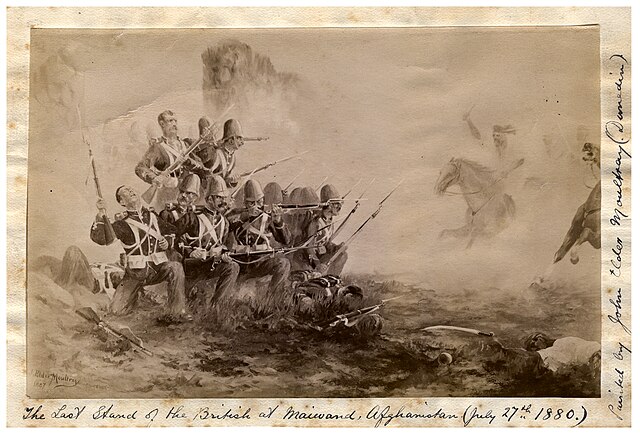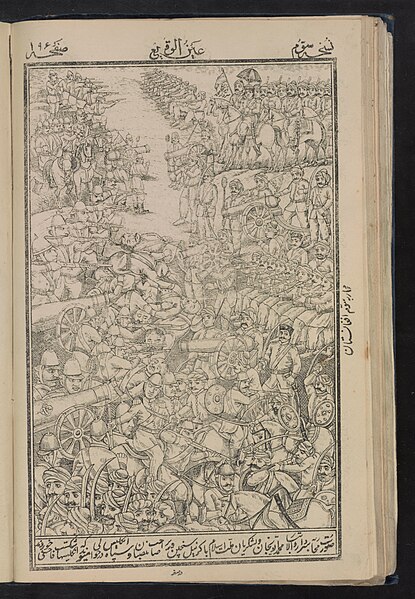Ayub Khan (Emir of Afghanistan)
Ghazi Mohammad Ayub Khan also known as The Victor of Maiwand or The Afghan Prince Charlie was, for a while, the governor of Herat Province in the Emirate of Afghanistan. He was Emir of Afghanistan from 12 October, 1879 to 31 May, 1880. He also led the Afghan troops during the Second Anglo-Afghan War and defeated the British Indian Army at the Battle of Maiwand. Following his defeat at the Battle of Kandahar, Ayub Khan was deposed and exiled to British India. However, Ayub Khan fled to Persia. After negotiations in 1888 with Sir Mortimer Durand, the ambassador at Tehran, Ayub Khan became a pensioner of the British Raj and traveled to British India in 1888, where he lived until his death in 1914 in Lahore, Punjab. He was buried in Peshawar and had eleven wives, fifteen sons, and ten daughters. Two of his grandsons, Sardar Hissam Mahmud el-Effendi and Sardar Muhammad Ismail Khan, served as brigadiers in the Pakistan Army.
Ghazi Mohammad Ayub Khan
The Battle of Maiwand, fought on 27 July 1880, was one of the principal battles of the Second Anglo-Afghan War. Under the leadership of Ayub Khan, the Afghan forces defeated a much smaller British force consisting of two brigades of British and Indian troops under Brigadier-General George Burrows, albeit at a high price: between 2,050 and 2,750 Afghan warriors were killed, and probably about 1,500 wounded. British and Indian forces suffered 1,200 dead.
"Maiwand: Saving the Guns". Royal Horse Artillery withdrawing from Afghan attack at the Battle of Maiwand, painted by Richard Caton Woodville
Frank Feller: The Last Eleven at Maiwand
John Elder Moultray: The Last Stand of the British at Maiwand
Depiction of the battle in a near-contemporary Persian source, from the Collected Works of Riyazi





